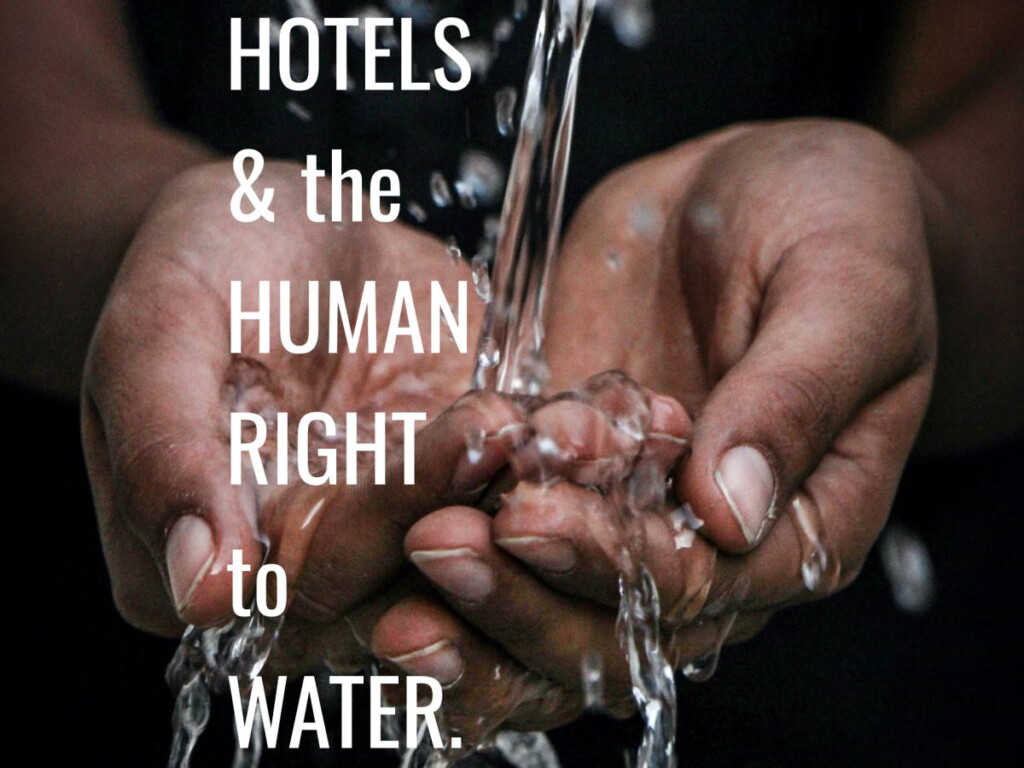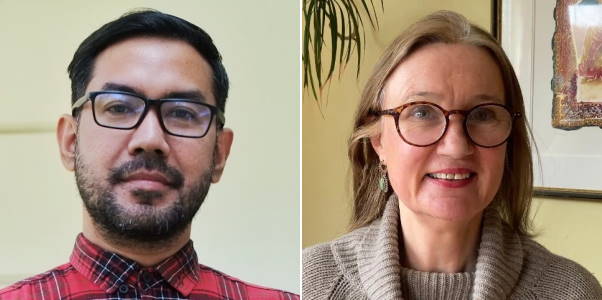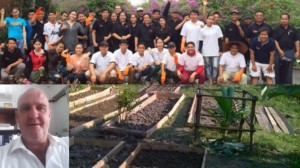How a human rights approach can help hotels improve their water management

Accommodation service providers are expected to honour the human right to water of all those around them.
Hoteliers should view this responsibility not as a burden, but as an opportunity to meaningfully and continually engage with destination stakeholders while developing more efficient and sustainable water and waste management systems.
It’s a “Good Tourism” Insight by activist academics Yesaya Sandang and Stroma Cole.
[You too can write a “GT” Insight.]
Socio-ecological conflicts are increasing as destinations around the globe face water supply pressures due to overtourism, population growth, and climate change.
In every case, the poorest and most marginalised members of a host community, such as women, children, and people with disabilities, suffer the most due to their unfair access to freshwater.
We believe that a human rights approach could progress initiatives that have challenged hotels to reform their water management systems, such as the Sustainable Hospitality Alliance water stewardship guidelines.
Our approach is inspired by the UN Guiding Principles on Business and Human Rights, which provide the first global standard for preventing and addressing risks of adverse impacts on human rights associated with business activities, including hotels and the human right to water (HRtW).
Don’t miss other “Good Tourism” content tagged with
“Water & waste management”
The UN’s definition of the human right to water is having access to sufficient, safe, accessible, and affordable water.
Under the UN’s Guiding Principles, hotels have a responsibility to respect the human right to water irrespective of size, sector, operational context, ownership and structure, or geographical area.
Furthermore, the Guiding Principles stress due diligence, especially wherever water is scarce or of poor quality, or where business activity affects the water supply of vulnerable or marginalised communities.
This means that hotels must consider their impact on other water users, including their right to water.
Our study, published in the Journal of Sustainable Tourism, revealed the challenges faced by hoteliers in their ability or willingness to respect the HRtW, and why hotels do not voluntarily adopt the UN’s Guiding Principles.
Impeding factors include:
- a lack of awareness;
- a lack of substantive voluntary schemes;
- the water tariff;
- the absence of data management;
- return on investment, profit, and public image being prioritised over environmental considerations; and
- inadequate regulations and their enforcement.
We also found that expecting hotels to voluntarily respect the human right to water is not straightforward.
It requires strong checks and balances between public law and civil society governance to guide and to pressure hotels to improve their environmental accountability.
Thus, sustainable water use in destinations will require the complimentary responsibilities of the State, hoteliers, and local communities.
Tourism will never be sustainable if the human right to water is not respected by tourism businesses such as hotels.
Hence, we suggest integrating human rights to water impact assessments (HRWIA) into the existing environmental impact assessment framework as a potential solution.
Organisations such as the Institute for Sustainable Tourism have been advocating for an integrated assessment where human rights (including the HRtW) are embedded within the scope of environment, social, and health impact assessments.
Don’t miss other “Good Tourism” content tagged with
“Hotels, resorts, and other accommodation”
In our Journal of Sustainable Tourism article, we identify the critical areas of understanding for a hotel’s HRtW impact assessment, which, if conducted rigorously, would enable engagement between hotels and their communities.
As a result, hotels could manage water in collaboration with local communities, whilst preparing and providing for any remediation through legitimate processes.
Meaningful community participation lies at the heart of sustainable tourism. The UN’s Guiding Principles note the significance of meaningful dialogue with potentially impacted stakeholders and paying special attention to disadvantaged communities.
Applying this understanding to water-related impact assessments, local communities must be able to meaningfully participate in shaping and influencing the assessment process itself, as well as the impact-related findings and decisions.
In respecting the human right to water, hotel water management considerations should not be confined to the domain and operations of a hotel but need to be extended out to all other stakeholders in a participatory and contextual fashion.
Authors’ disclosure: This piece is a short version of our article “Using a human rights approach to improve hotels’ water use and sustainability”, Yesaya Sandang & Stroma Cole (2022), Journal of Sustainable Tourism, DOI: 10.1080/09669582.2022.2108041
What do you think? Share a short anecdote, comment, or question below. Or write a “GT” Insight of your own. The “Good Tourism” Blog welcomes diversity of opinion and perspective on travel & tourism because travel & tourism is everyone’s business.
Featured image (top of post): Hotels and the human right to water. Image by mrjn Photography (CC0) via Unsplash.
About the authors

Yesaya Sandang is a lecturer at the Faculty of Interdisciplinary Studies at Universitas Kristen Satya Wacana, Indonesia. He researches the intersection of law, tourism, and human rights, particularly by using socio-legal approaches. Yesaya is also an activist affiliated with community development and human rights NGOs in Indonesia.
Stroma Cole is a Reader in tourism at the University of Westminster, London, UK. Dr Cole is also a Director at Equality in Tourism. With interests in gender, responsible tourism development, human rights, and the links between tourism and the SDGs, she is an activist researcher critiquing the consequences of tourism development. Stroma is an Associate Editor for Annals of Tourism Research and is on the editorial boards of Journal of Sustainable Tourism and Tourism Geographies.





